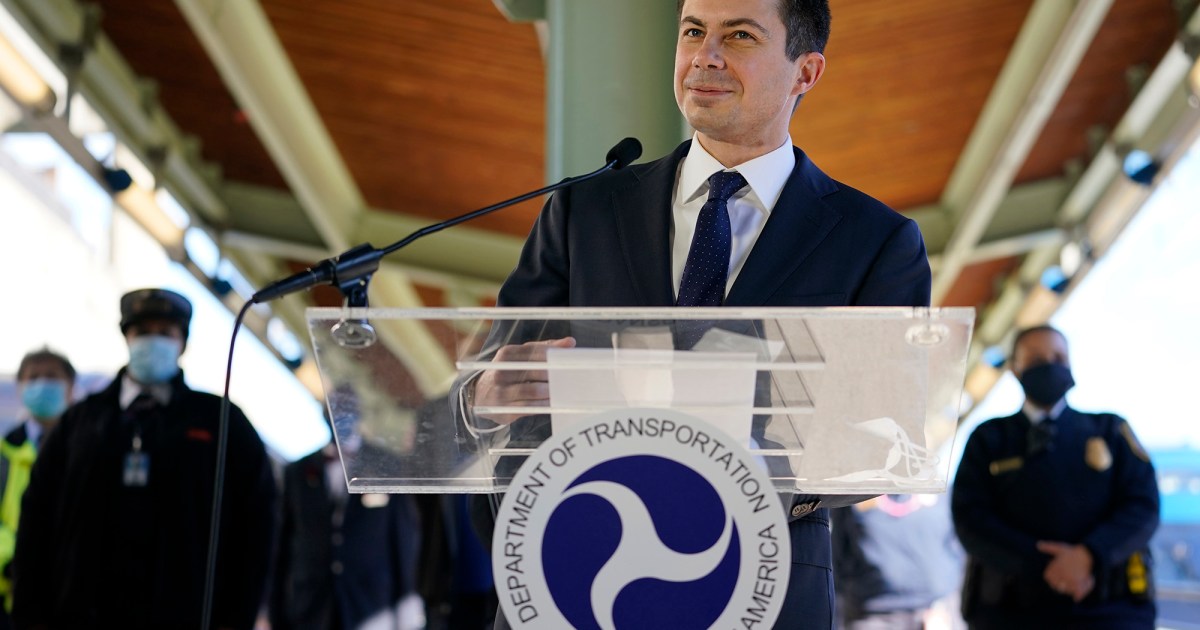it's all infrastructure, my friends!
universal health care is HUMAN infrastructure, even free ice cream in the mail in my book should be considered as infrastructure! IT'S ALL INFRASTRUCTURE!
The GOP governor of South Dakota had complained that Biden's infrastructure plan would fund "housing and pipes."

www.motherjones.com
Correct about public water. It is infrastructure. I'm not sure it's anything the federal government should be involved in replacing...but if it comes down to spending money on another destroyer that will be around for 20 years and never fire it's guns in anger and replacing the lead pipes in Jackson, MS...I'll take the pipes.
Correct about human infrastructure. Not sure about healthcare being part of the equation but certainly educating the masses is something that is just a fact of life with most societies...the US is at a disadvantage when we just write off 40% of the nation deeming them "educated enough" with a HS diploma.
As for the ice cream...you sound like an idiot.
"Human infrastructure" is a made-up term that means "This isn't infrastructure, but I want to bullshit you to get money". And using it confirms that you're an idiot.
Universal broadband is not infrastructure either--anymore than telephone, telegraph, television or trains are.
I'd have to know specifically what you're referring to in regards to universal broadband. Trains, or at least train tracks, would be infrastructure in the same way roads would be. Likewise, the cross-country lines and poles that carry telegraph and landline telephone to a community are, or were when such things were largely in use. Cellphone towers that are privately owned by the cellphone company, however, are private property . . . although I could see a certain amount of vested community interest in keeping them up and running.
Nope, Train tracks were not laid by governments. Telephone and telegraph infrastructure was paid for by Bell/ATT which is why it was such a shame when they broke up the Bell system in the 70's for violations of the Sherman act. True, cell towers are privately owned--as were rails, and wired communication. These are private industries and should not receive taxpayer $$. Their customer base should shoulder the costs as with any other industry.
Actually, whether or not train tracks were laid by governments would depend on the tracks in question. Also, one could make a very strong argument for a vested community interest in keeping rail lines in functional shape if there is not a private party doing so.
Also, there are places where telephone and telegraph infrastructure was paid for or subsidized by government, because it wasn't sufficiently profitable to the companies to run lines to remote rural areas.
I would view all of the above as "infrastructure, but not necessarily infrastructure the government has to pay for". I vastly prefer these things done by private industry, with government only stepping in when private industry can't or won't (see the above-mentioned remote rural areas).
I live in a remote rural area where broadband is not widely available--I paid for my own. Life can go on without phones, televisions, internet etc. It is not the taxpayers job to provide luxuries to the populace.
I didn't say anything about broadband or television. I don't consider telephones entirely a luxury, insofar as they're necessary for calling emergency services if needed. Not to say that I think the government should be providing individual people with phone lines; just that I would consider it appropriate for them to ensure that a community had phone service available IF - and only if - a private company couldn't or wouldn't.
My take is more along the lines of "if you desire to live in an area that does not have those services and you want them, it is incumbent on you to get them or move somewhere else where you can. That has been the American way since the beginning--we would be in a hell of a shape if we waited for the gov't to provide the pioneers with conestogas and infrastructure before they opened this country up.
I find that immensely shortsighted and not well-thought-out. First, it's neither feasible nor desirable for absolutely everyone to live in a mega-city, and it's unreasonable to act as though living in smaller towns is some pure luxury, like owning a yacht. I have friends who live in small communities in the middle of nowhere because they do jobs that very much need to be done, and that happens to be where those jobs are done.
Second, I never suggested that the FEDERAL government should provide such infrastructure to those areas. There ARE other governments, you know.
Okay, I gotta cut this short. See you this evening, hopefully, if my Internet isn't being complete crap.
